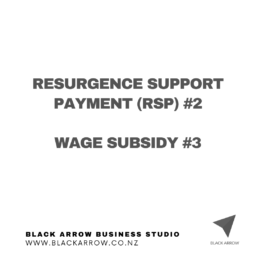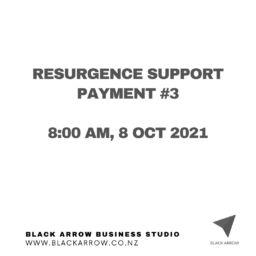
Starting a business as a sole trader can be a convenient option for those who wish to work for themselves or as a contractor for others. However, it may not be suitable for everyone. If you’re considering becoming a sole trader or have already done so and need more information, this is the place to find helpful tips and resources.
Starting a business as a sole trader is a straightforward process that doesn’t require legal procedures or registration with government agencies.
As a sole trader, you have complete control over your business and keep all the profits. While you enjoy some benefits similar to those of employees, such as paid parental leave, there are certain things you may miss out on, like paid sick leave or the opportunity to exchange ideas with your teammates.
A variety of individuals are drawn to being a sole trader, including:
- tradespeople such as electricians, house painters, and plumbers
- contractors who work for other organisations like IT consultants and builders
- small business owners like hairdressers and landscape gardeners
- people turn their hobbies into a business, such as artists and furniture makers.
If you are considering becoming a sole trader, it is advisable to consult with professionals in the industry to determine if it is right for you.
If you plan to sell your business or secure investors in the future, starting with a company structure is recommended. Our Choose Business Structure tool can assist you in making this decision.
If you’re unsure whether a sole trader structure is the most suitable option for your business, take advantage of the Choose Business Structure tool. With just three brief questions, you can determine whether this structure aligns with your business’s requirements.
Before becoming a sole trader, it’s important to have a clear understanding of why you want to pursue this path and what you hope to achieve. While being a sole trader can provide flexibility and the ability to be your own boss, you may also find yourself being the sole employee.
Utilise our resources, including tips and tools, to assess your business idea and determine your potential earnings as a contractor.
Seek advice from others who have chosen this structure and consider consulting with a specialist advisor, such as a lawyer or accountant familiar with your industry.
Questions to ask before you start
Government help for sole traders
To establish yourself as a sole trader, you will require:
- A personal IRD number to pay income tax and GST
- Applicable government licenses and permits for your business
- Relevant qualifications or registrations for your profession or trade.
After registering as a sole trader, you must inform Inland Revenue, and if your earnings exceed $60,000 per annum, you must register for GST as well.
Additionally, obtaining a New Zealand Business Number (NZBN) is an option available to all businesses in New Zealand. This unique identifier can speed up communication with government entities, suppliers, customers, and other businesses by allowing for the easy sharing of invoicing details.
Get an NZBN — New Zealand Business Number
It’s crucial to consider intellectual property (IP) from the early stages of your business, which includes protecting your logos, trademarks, and inventions. By safeguarding your IP, you are also safeguarding the time, money, and effort you’ve invested in your business.
Sole traders must refrain from advertising their business under their personal name if someone has already registered it as a trademark in the same industry.
Understanding the importance of IP is crucial for the success of your business, as it will be relevant throughout its lifespan. Use our ONECheck tool to verify whether your desired business name, trademark, web domain, or social media username has already been registered.
Simple steps to protect your IP
As a sole trader, you have the option to hire staff, but you must first register as an employer with Inland Revenue and fulfill specific obligations. However, the majority of sole traders begin as the sole employee of their business. This implies that you are responsible for all interactions with government agencies, such as ACC and Inland Revenue.
Registering with government agencies
If you are involved in any of the following activities, you may be required to comply with regulations aimed at detecting and preventing money laundering and the financing of terrorism:
- Managing money or assets for clients
- Providing trust or company services
- Selling real estate
- Providing conveyancing services
- Handling large sums of cash
These regulations may impact the records you are required to maintain and how you identify your customers.
Individuals often choose to become sole traders because they possess particular skills that they want to monetise. However, attempting to handle all aspects of business, including day-to-day finances and business planning, in addition to their area of expertise, can be challenging, if not impossible. As a result, it is recommended that you seek advice and guidance from advisors such as accountants, mentors, and lawyers from the outset.
How business advisors can help
It is commonplace for your accountant or lawyer to request to verify your identity, as this is necessary to comply with anti-money laundering regulations.
If you’re a sole trader, it’s crucial to keep in mind that you’re accountable for any business-related debts, such as what you owe to your suppliers, Inland Revenue, and ACC.
If you are unable to pay off your debts on time, it is critical to act quickly. Communicate with those you owe money to; they may be willing to accept a more manageable payment plan. Additionally, ensure that you are receiving payments on time.
To avoid the risk of losing assets like your car or home, it is recommended to seek advice from an accountant or lawyer before starting your business. They can suggest ways to protect your home, such as putting it in a trust.
As a sole trader, you can withdraw funds from your business profits for personal use. However, it is important to keep a record of any money taken from work accounts for your living expenses.
An Overview of Taxes and Levies
If your estimated annual turnover is over $60,000, it is mandatory for you to register for goods and services tax (GST).
GST of 15% is applicable to most goods and services you buy and sell. By registering for GST, you can claim back the GST you pay on business-related purchases and also charge GST on the goods and services you sell, which are collected on behalf of the government.
If your annual turnover is less than $60,000, you have the option to voluntarily register for GST. However, if you are unsure whether it is worth it, you should consult with an accountant to help you make an informed decision.
Registering for GST — Inland Revenue
As a sole trader, paying income tax can be a straightforward process that may even qualify you for a first-year tax discount if done correctly. However, failure to get it right can result in penalties.
To determine your taxable income, which is the profit you make after deducting work expenses, your IRD number is used to calculate how much you’ve earned in the financial year. At the end of each tax year, you must file an IR3 income tax return.
If you manage to pay all your first-year income tax before the financial year-end on March 31, you may be eligible for a 6.7% discount on your income tax. Consult with an accountant to learn how you can take advantage of this opportunity.
Provisional tax
In your second year, you might be required to pay provisional tax, which entails paying your income tax in instalments throughout the year. The amount of provisional tax you’ll need to pay is based on either your anticipated profit for the year or your GST.
Contractors
If you’re a contractor, you won’t have PAYE (pay as you earn tax) deducted from your income since you’re not considered an employee.
However, some contractors, such as those working in horticulture or film industries and receiving schedular payments, are subject to a flat-rate tax. You can also potentially arrange with your employer to receive schedular payments, which allow for the tax to be paid as you receive payment.
Understanding schedular payments — Inland Revenue
It’s essential to maintain precise and comprehensive work records for a minimum of seven years. These records should encompass banking details, evidence of income (including cash income), expenses, invoices, and cashbooks.
Paying tax your first year in business — Inland Revenue
Sole trader expenses and records — Inland Revenue
To help minimise your tax bill, you may be eligible to reclaim several expenses incurred during your day-to-day business operations. It’s crucial to comprehend which expenses you can and cannot claim.
As a sole trader, you’ll receive ACC personal injury cover known as CoverPlus from the first day of your business. The cost of this cover will depend on the nature of your work and your liable earnings.
You have the option to switch to CoverPlus Extra, which allows you to regulate the percentage of your income that ACC will cover, potentially reducing the levies you pay.
You’ll receive your first levy invoice after completing your first year in business, and subsequent invoices will typically be issued annually in July or August.
Are you struggling with accounting and business management for your business? We are here to help! Get in touch with us to discuss how our expert services can support your business’s success. Contact us today to schedule a free consultation and see how we can add value to your operations.















